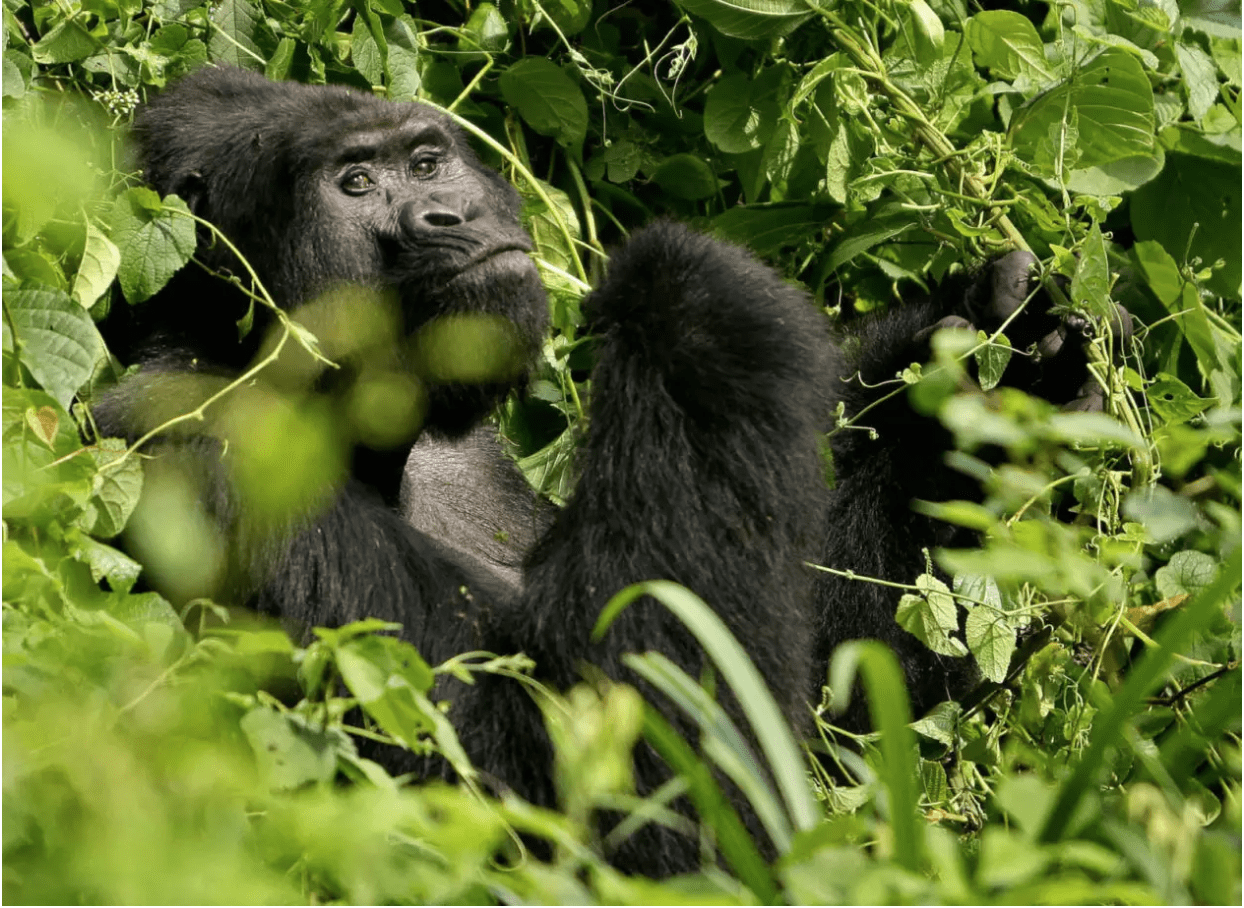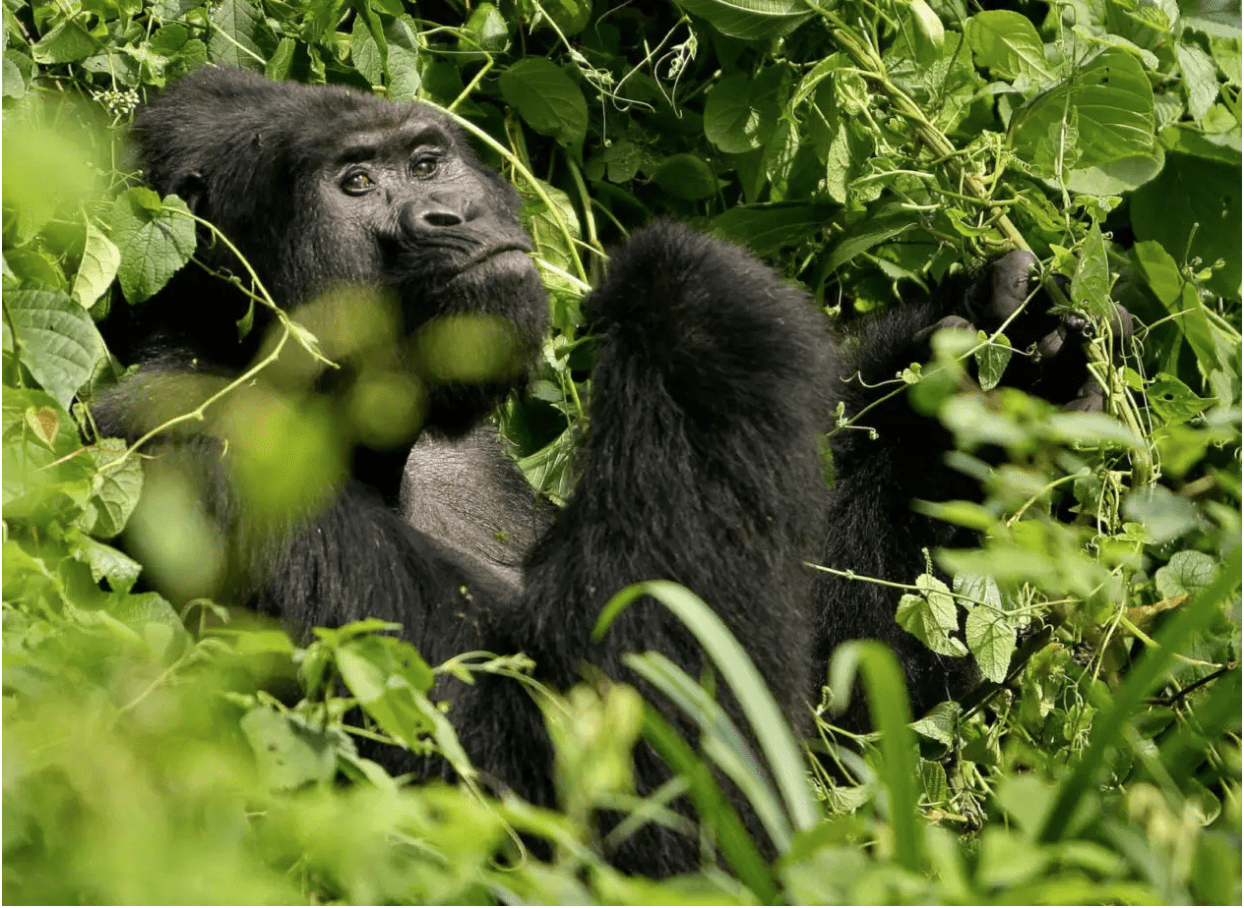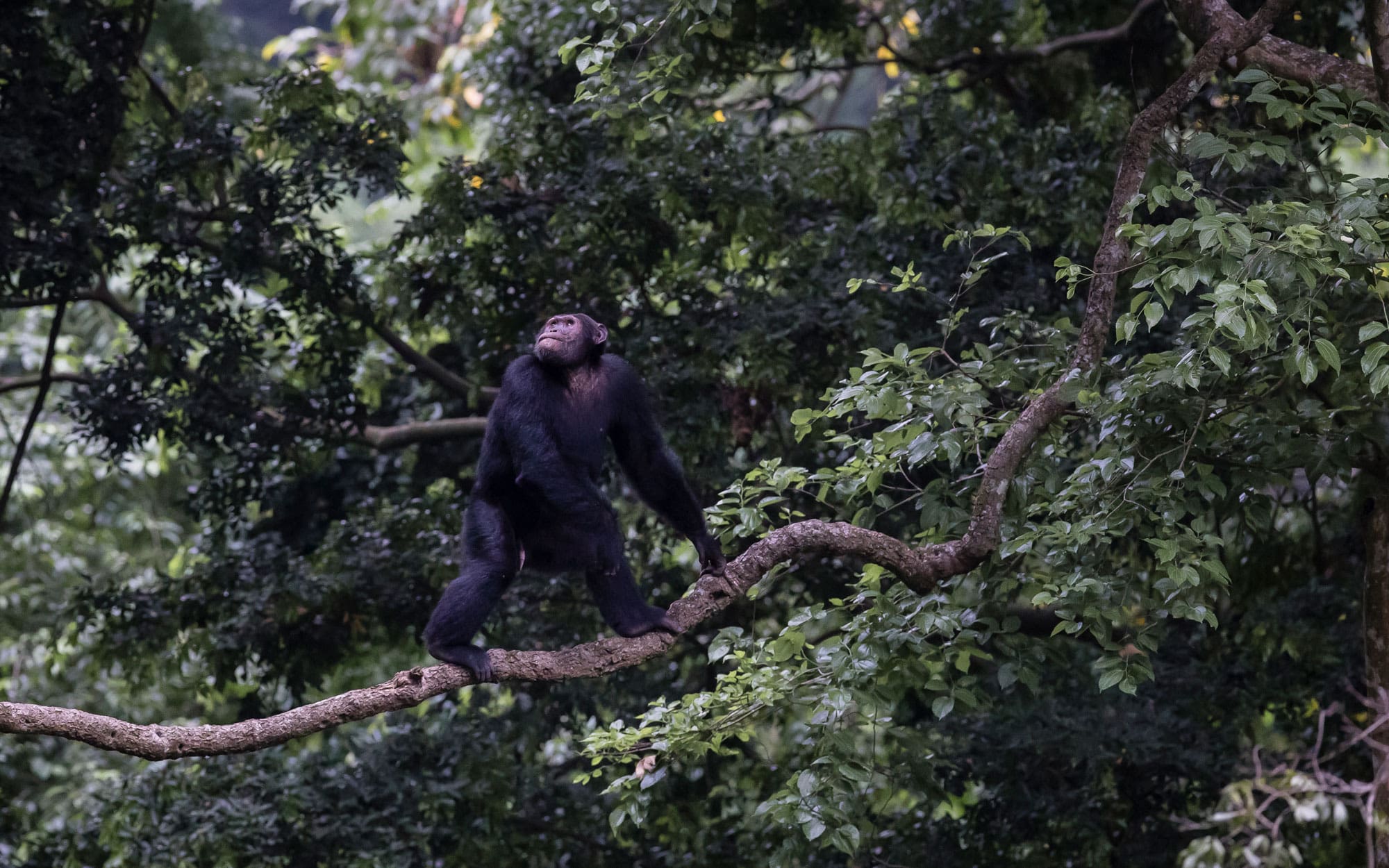Connect with us
About
Main Menu
Resources
Main Menu
Main Menu


I’m currently gorilla-trekking in south-west Uganda, home to more than half of the world’s mountain gorillas, and having a wonderful time. The gorillas themselves are nothing like the way they’re depicted in popular culture – they are gentle and placid, like oversized koala bears.
As I crouched in a glade in the Bwindi Impenetrable National Park, watching a family play together, I realised the Planet of the Apes films have got it back to front. In real life, it’s the chimps that are aggressive and testy. Gorillas are stately and wise.
I’m not entirely comfortable with the whole concept of eco-tourism. There is no reason why a person cannot be a passionate conservationist and care deeply about the abject poverty of sub-Saharan Africa, but the two don’t always go hand-in-hand.
Some Western visitors to Africa seem to value the local wildlife more highly than the people. Insofar as they notice them at all, they see only confirmation of their own romantic fantasies, talking earnestly about how much more meaningful it is to lead a simple life, unencumbered by material possessions.
One person who is emphatically not suffering from the “noble savage” illusion is Dr Scott Kellermann, an expert on tropical diseases and public health, who first visited this part of the world in 2000. He had heard about the plight of the Batwa, forest people evicted from their homelands to make way for the gorilla parks, and wanted to see them for himself.
He carried out a survey and found that their health was not good. Their average life expectancy was 28 and more than a third of them died before reaching the age of five. Those are terrible stats, even by the standards of sub-Saharan Africa.
Dr Kellermann and his wife Carol returned to America, but they had been so deeply affected by the extreme poverty they witnessed that they decided to return as missionaries for the Church of Uganda, and set up a mobile health clinic for the Batwa.
They bought a van, filled it with medical equipment and drove from settlement to settlement. But as their clientele extended beyond the Batwa, they realised that wouldn’t be enough, so they liquidated some assets in the US, which included a 50 per cent share in a private hospital in California, and used the money to set up a permanent health centre in 2003.
It was upgraded to the Bwindi Community Hospital in 2008 when it added an operating theatre, and, since then, has been run by Dr Birungi Mutahunga, a Ugandan. It is now the main source of medical care in the Kanungu District, serving a community of more than 100,000 people.
“My wife and I just felt like we’d come home,” explained Dr Kellermann when I visited him at the hospital on Tuesday.
It is impossible not to be overawed by what the Bwindi Hospital team has achieved. The hospital comprises a cluster of one-storey brick buildings and includes an accident and emergency ward, a family planning clinic and an HIV department. It specialises in maternal and children’s healthcare and, through a combination of primary care, outpatient clinics and preventative medicine, the staff have reduced the incidence of maternal deaths during live births to almost zero.
The main cause of infant mortality used to be malaria. Now, thanks to the hospital’s distribution of mosquito nets, as well as a public health campaign, it is malnutrition – and that, too, is on the wane. “The cause of malnutrition in infants isn’t poverty but lack of knowledge,” the 75-year-old doctor told me.
“The mothers thought they could feed their children on bananas and nothing else after weaning them. We’re gradually teaching them to give them green vegetables as well.”
The Kellermanns are indefatigable fundraisers and one of the most remarkable features of Bwindi Community Hospital is that it keeps on growing. Often, the donations come from Americans staying at one of the nearby safari lodges, particularly Volcanoes Safaris, whose owner Praveen Moman is a friend of Dr Kellermann’s.
On the back of a donation of $750,000 from the CEO of a major US airline and his travelling companion, the Kellermanns were able to add a residential nursing school that now boasts 287 students, all living on site. Dr Kellermann is currently trying to raise money to build a training facility so it can become a teaching hospital by 2025.
“People come here to see gorillas, lions, crocodiles, the sunshine,” Dr Kellermann said when I asked what prompted him to undertake this monumental task. “But for me it is the people. I just love these people.”
If you would like to make a donation to Bwindi Community Hospital, you can do so via reachbwindi.com.
© Volcanoes Safaris 1997 – 2024. All Rights Reserved
Write to us on [email protected] or send us a message via the form on our contact page.
Rwanda: +250 (0) 252 502 452
Uganda: +256 (0) 414 346 464


Tracking chimpanzees in their natural habitat, as they swing from the branches in the canopy high above the forest floor is nothing short of exhilarating. The chimps effortlessly cross and scamper through the trees above the gorge, and visitors on the other hand must cross the river using natural bridges in order to keep up with the chimps. So although the walk usually lasts only 2–3 hours, descending the steep gorge and crossing the log bridges over the river requires some agility and fitness.
Chimpanzee tracking is also available in nearby Kalinzu, a forest reserve 30 minutes drive from Kyambura Gorge Lodge where there is a community of about 40 habituated chimpanzees.